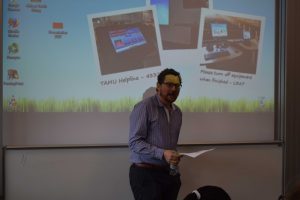Richard Kweitsu is a Mo Ibrahim Scholar pursuing MSc International Development (Governance and State Building) at the University of Birmingham. He is currently working as an intern at GSDRC.
As part of activities marking the celebration of Africa Union Day on May 25, students of African descent studying at the International Development Department of the University of Birmingham organized a program dubbed “Africa Day Celebration”. The objective of the program was to reflect on the development trajectories of Africa taking cognizance of the successes, failures and projecting into the future. The program also celebrated the diversity of Africa by showcasing the food from different countries on the continent.
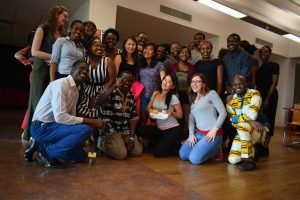
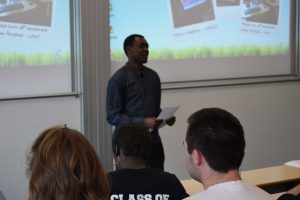
The program started with a presentation on good governance and corruption in Africa by Richard Kweitsu & Obinna Chukwu. This presentation reflected the diversity of Africa by highlighting the good, bad and ugly examples of governance on the continent. Although Africa is often regarded as a continent of bad governance, there are bright examples of countries like Mauritius, Botswana, Ghana among others that have performed exceptionally well in promoting democracy and good governance. Over the past few years, these countries have gained international recognition for championing democracy and ensuring smooth and peaceful transfer of power. These countries have also been among the top performers across various indicators over the past decade based on the Ibrahim Index of African Governance.
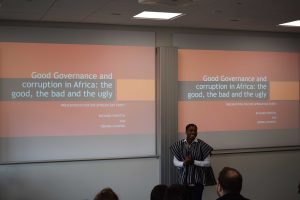
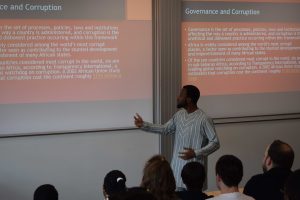
The second presentation by Julius Mubiru took a closer look at the state of health care delivery in Africa. While highlighting challenges such as the inadequate health workers, poor infrastructure and political instability in many countries on the continent, the presentation praised the swiftness of many countries in putting containment plans in place to prevent Ebola from spreading. The resilience of some health care workers in Liberia, and Sierra Leone who laid down their lives in their attempt to save victims of the Ebola virus also came up for praise. Nonetheless, the presentation urged governments to do more in tackling the HIV/AIDs and malaria epidemics on the continent.
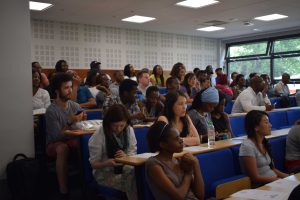
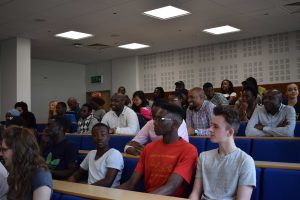
Africa’s youthful population has been regarded by many as a ticking time bomb with devastating consequences if opportunities are not provided for the ever-growing youthful population. In view of this, the third presentation by Jennifer Pearse highlighted the growing number of young people using technology to create solution to many of the continents challenges. The presentation also cited a recent survey, where over 72% of young people noted that they prefer to start their own businesses- an indication of a growing enthusiasm among young people to confront the challenges of employment if governments create the enabling for them to thrive.
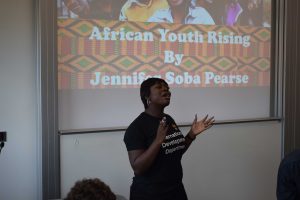
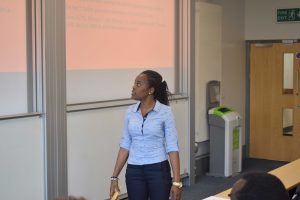
The fourth presentation by Kuwa Bargil & Maggy Munyasya focused on Economic Development in Africa. Although recent Economic Outlook Reports by IMF and the African Development Bank has projected Africa as the fastest growing economy in the world, it remains the poorest continent in the world as well. The presentation bemoans the continuous reliance on raw materials, corruption and political instability as the bane of economic development on the continent. In order to move out of this economic quagmire the continent is facing, African governments have been advised to promote economic diversification, combat corruption and promote good governance.
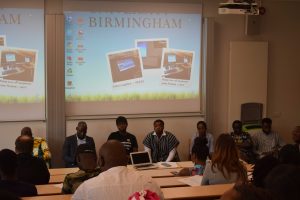
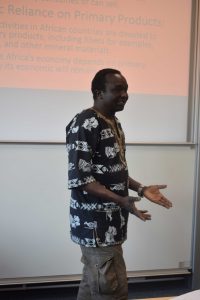
The final presentation on the day was on security, by Christian Achaleke Leke. Although the continent is inundated with several conflicts and security challenges, the presentation expressed optimism and hope of a peaceful Africa in future. The presentation also commended the growing collaboration of governments in the Lake Chad region in tackling the terrorism menace as positive development.
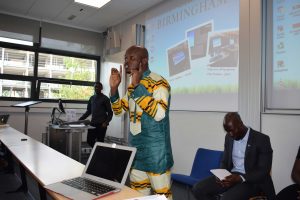
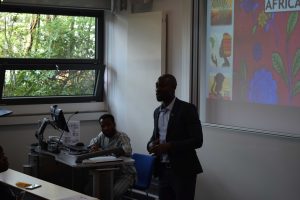
The program ended with an African food exhibition where local dishes from Ghana, Cameroon, Malawi, Sudan, Nigeria and other African countries were on display for the participants.
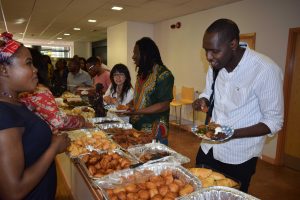
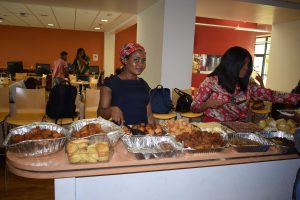
Present at the program, were some members of staff from the International Development Department as well as the Department of African Studies and Anthropology. In all, more than 80 participants who are students within the University were present.
